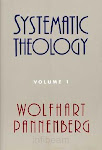What is Dogma?
What is dogma or doctrine? Dogma is what is “believed, taught, and confessed” (p. 3).
By relating what is confessed to what is taught and believed, the author seeks to take account of how doctrines have developed. Without setting rigid boundaries, he identifies what is “believed” as the form of Christian doctrine present in devotion, spirituality, and worship; what is “taught” as the content of the word of God extracted from the witness of the Bible and communicated to the people of the church through proclamation, instruction, and churchly theology; and what is “confessed” as the testimony of the church, both against false teaching from within and attacks from without, articulated in creed and dogma, polemics and apologetics (p. 4).
The relationship between what is believed, taught, and confessed is subtle – and sometimes impossible to unravel. “[D]octrine has developed back and forth between believing, teaching, and confessing” (p. 5).
Pelikan offers a salutary critique of modern Protestant histories of dogma. “Since most of Protestantism had concluded its confessional development by the middle of the seventeenth century, there could not be a history of Protestant dogma, but only a history of Protestant theology.” Furthermore, “their [Protestant dogma’s professed histories’] arbitrariness becomes especially evident in the terminus ad quem assigned to the study: the last (or the latest) council or confessional document of a particular branch of the church” (p. 4).
One thinks immediately of, for example, Lohse’s A Short History of Christian Doctrine and its concluding chapter on the German Lutheran “Barmen Declaration” (1934).
What history of doctrine is not
This said, Pelikan agrees with Lohse that history of doctrine is not to be equated with the history of (speculative) theology.
“Christian doctrine is the business of the church,” he says (p. 3). If the historian forgets this, he “runs the danger of exaggerating the significance of the idiosyncratic thought of individual theologians at the expense of the common faith of the church” (p. 3). The history of doctrine is not to be equated with the history of X (X being “interpretation/ hermeneutics”, “the church”, “ecclesiological politics” or whatever, see p. 61), but X may affect the former, and it is the task of the serious historian to determine when and in what measure it does so.
In speaking about the opposition to “the Nicene faith” after 325 AD, Pelikan writes: “The story of this opposition has been told often, though not always well. Many accounts of the development of doctrine during the half-century from Nicea to Constantinople lose themselves in chronology and political history. As we indicated [earlier], the political history of these decades is in many ways more important – and in most ways more interesting – than the doctrinal history. Yet a development of doctrine there is, and one which can (keeping as much of the chronology in view as can safely be determined from the documents) be traced in its own terms.” (p. 207.)
This, too, is a revealing instance of the author’s methodology which, despite its self-imposed limits, does not downplay the importance of non-doctrinal influences.
Augustine, one of my favourite theologians – both intellectually and as a person – receives a superlative-filled praise which, however, ends with a salutary qualification. What is genius compared to doctrine?
 “[T]here is probably no Christian theologian – Eastern or Western, ancient or medieval or modern, heretical or orthodox – whose historical influence can match his. Any theologian who would have written either the Confessions or the City of God or On the Trinity would have to be counted a major figure in intellectual history. Augustine wrote them all, and vastly more. He was a universal genius.” (p. 292.)
“[T]here is probably no Christian theologian – Eastern or Western, ancient or medieval or modern, heretical or orthodox – whose historical influence can match his. Any theologian who would have written either the Confessions or the City of God or On the Trinity would have to be counted a major figure in intellectual history. Augustine wrote them all, and vastly more. He was a universal genius.” (p. 292.)But then the qualification: “Yet genius is not so rare as all that – and, more importantly, not so pertinent as all that to the history of the development of Christian doctrine as that which the church believes, teaches, and confesses on the basis of the word of God” (p. 292–3).







No comments:
Post a Comment